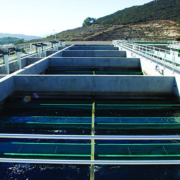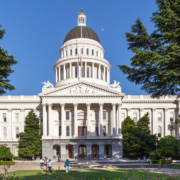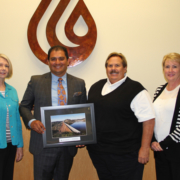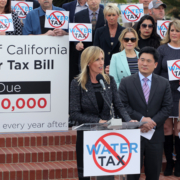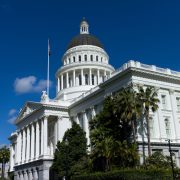Water Authority Bill Aims to Boost Water Industry Jobs for Veterans
July 10, 2019 update: Assembly Bill 1588 passed the Senate Veterans Affairs Committee on a 6-0 vote July 9 and will be considered by the Senate Appropriations Committee on August 12.
May 29, 2019 update: Assembly Bill 1588 passed the state Assembly on a 78-0 vote on May 23 and is now under consideration by the state Senate.
A new bill in the California Legislature would provide a path for veterans transitioning to civilian employment to receive credit for their military experience and education toward certifications in the water industry.
Assembly Bill 1588 was introduced February 22 by San Diego Assemblymember Todd Gloria and Central Valley Assemblymember Adam Gray. The bill, which may be heard in committee this month, is co-sponsored by the San Diego County Water Authority and the Otay Water District in hopes of helping the state’s industry replace a wave of retiring Baby Boomers.
Several states help veterans navigate the civilian water system operator certification process and allow veterans to apply equivalency standards to credit military experiences toward state or industry certifications in water and wastewater treatment and distribution. However, no similar pathway exists in California.
‘Silver tsunami’
“The goal is to help veterans transitioning into civilian occupations, especially in the water and wastewater industry,” said Glenn Farrel, government relations manager for the Water Authority. “At a time with the water industry is facing a ‘silver tsunami’ – with thousands of workers expected to retire in coming years – veterans are returning to the civilian workforce with skills to benefit the industry and fill those jobs.”
Water and wastewater treatment is an essential industry and with an aging infrastructure and workforce. There are approximately 6,000 active certified wastewater treatment plant operators and approximately 35,000 drinking water treatment and distribution operators in California.
Challenges for water industry
Replacement of critical infrastructure components, while maintaining service to customers, is one of the greatest challenges in the water-wastewater industry today. In addition, the high pace of retirements, new technologies and increased demand for safe drinking water contribute to the pressure on the industry to augment the workforce.
“If veterans could more quickly move through the civilian certification process, the California water industry would have a much larger pool of highly skilled, motivated, and talented people eager to continue their public service careers,” Farrel said.

